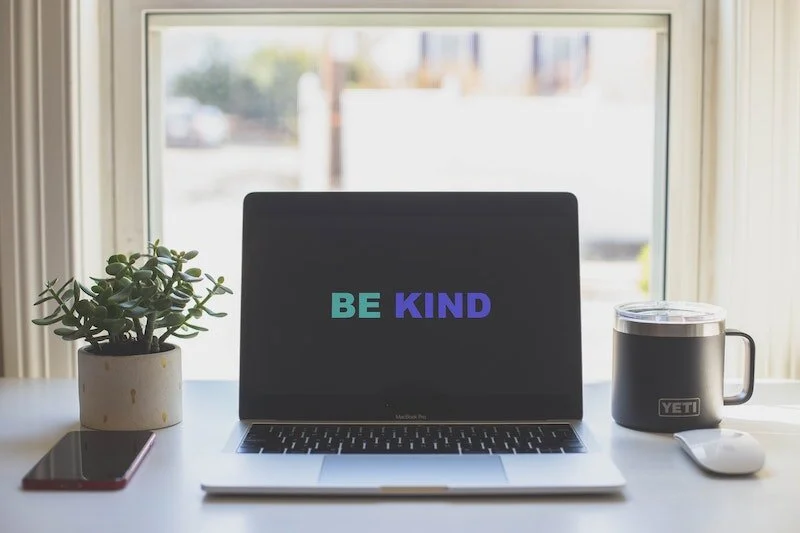Do we need a Hippocratic Oath for health copywriting?
Image: laptop with the words ‘be kind’ on the screen. (Photo by Dayne Topkin on Unsplash)
Thinking about the unintended consequences of the words we use to describe illness got me pondering the idea of kind copy in a wider sense.
Let's think of kind copy as the opposite of aggressive 'bro copy' that uses false urgency and scarcity tactics to turn up the reader's FOMO dial and guilt-trip them into buying.
(Usually accompanied by a countdown timer and a photo of a rented Lambo).
It’s not a new idea. When I first started out as a copywriter, there were plenty of Facebook groups filled with earnest copywriters throwing their hands in the air at the pushiness of some traditional direct response copywriting. But I found the 'let's not be sleazy salesfolk' chat a bit wishy-washy. Explicitly non-salesy sales strategies felt like a fig leaf for our awkwardness about putting ourselves out there and promoting our work.
Does it have to be one extreme or the other, I wondered? You still want to sell, don’t you?
(Side note: if you genuinely believe in the value of what you're selling, sharing it never feels like selling. If you worry about being pushy, you're not. Pushy people never worry about being pushy. So you're good.)
The thing is, it's not enough to just not write aggressive sales copy. Our copy should be anti-aggressive.
Anti-aggressive copy – kind copy – is about leaving the reader better than you found them.
Let's think about that for a minute.
Always leave someone better than you found them.
On a human level, it's just a nice thing to do, isn't it?
On a business level, maybe it gives you good karma, and they'll send some referrals your way.
Does it work in copywriting? I think so.
We don't need to poke at vulnerabilities to make the sale. What we're offering isn't going to be a good fit for everyone, but we don't need to lay any guilt/shame/'less-than' feelings on those that aren't interested or need to opt out.
We can leave them with a small win.
Something funny to share.
Forgiveness for the strategies they've tried that didn't work.
Compassion for whatever it is that means they can't work with you right now, even though they might want to.
New insights that get them on the right track, so maybe they'll trust you enough to come back in future, when their budget, schedule or circumstances are a better match.⠀
Do we need a Hippocratic Oath for copywriting?
As a health copywriter, appropriating the medical profession’s oath to ‘do no harm’ seems especially appropriate.
What if we go further, and commit to not only 'do no harm' and avoid offensive words and tactics in our copy, but to 'proactively help' the reader, even if they're not going to buy or sign up.
What do you think? How can you leave your reader better off than when they found you, even if they're not going to click right away?
Want help with creating thoughtful copy for your business? Get in touch.




